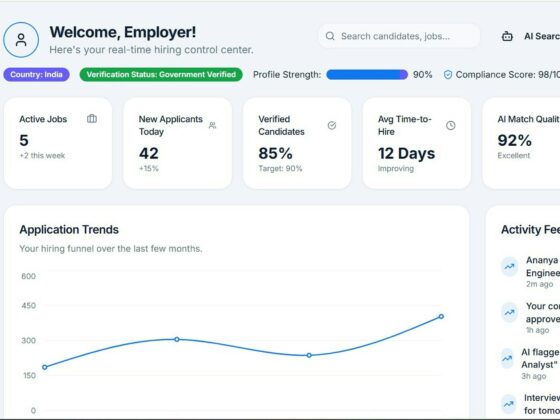
Airbnb, the house-sharing pioneer long synonymous with offering travelers alternatives to traditional hotels, is now making hotels a cornerstone of its growth strategy. The company’s second-quarter 2025 earnings release and subsequent analyst call delivered both impressive financials and a candid road map for transformation, confirming that embracing hotels is no longer taboo for Silicon Valley’s home-sharing unicorn.
Airbnb blew past Wall Street expectations, reporting Q2 revenue of $3.1 billion—up 13% year over year—and adjusted earnings of $1.03 per share. Net income reached $642 million, and the company booked 134 million “nights and experiences,” a 7% annual increase. The accelerated demand extended globally, with Latin America and Asia Pacific leading growth, even as North America growth softened.
Investors seemed more attuned to Airbnb’s cautious guidance for the second half of 2025, as execs expect slower revenue and softer margins owing to tough year-over-year comparisons and stepped-up investments in technology and regulatory compliance. CEO Brian Chesky called out increased competition from hotels and mounting regulatory pressure on short-term rentals as ongoing headwinds, forecasting Q3 revenue between $4.02 billion and $4.1 billion while confirming heavy investments in new initiatives might compress margins in the near term.
Investors responded by sending Airbnb’s stock down over 6% following the call, with the stock down more than 7% since the earnings report as of press time.
And about those hotels: Chesky said Airbnb will be competing more directly with that segment of the travel sector.
“We’re going to be going significantly more aggressively into hotels,” Chesky said toward the end of the call. He added that Airbnb has spoken with hotels around the world, especially independent boutique and bed-and-breakfast locations. “We’ve spent a lot of time looking at hotels as a business. We think it’s really compelling, and we think that there’s going to be a lot more to do with hotels on Airbnb.”
Airbnb’s hotel phase
Crucially, Airbnb’s call centered around its expansion “beyond the core”—including hotels. Chesky referred to it as an “and not an or” strategy: Airbnb will maintain its iconic homes product while ramping up hotel supply, especially internationally where it’s still seeing opportunity for growth. “A huge percent of hotels in Europe are independents,” Chesky said.
Why the shift? Airbnb’s data suggests many travelers browse home listings but don’t always book, citing lack of availability or preference for hotel amenities. By integrating hotels, Airbnb fills network gaps—especially in cities and peak periods, when home options are limited.
The company’s HotelTonight application was offered by Chesky as an example of a successful acquisition. “We’ve historically primarily focused on building organically, but we absolutely are open to acquisitions, and we are going to be looking at it. And I think that we are now in a better place to consider acquisitions now that … we have this new expanded strategy where we’re focused not just on all aspects of traveling, but also living.”
It’s an open debate for some communities on Reddit whether a hotel or an Airbnb is the better choice. One thread, r/TravelHacks, features a discussion of whether there’s even a difference at this point. A commenter wrote the general consensus seemed to be that Airbnbs are better for large groups and hotels for solo trips, albeit dependent on the location. Surely, this is a gap that Chesky and Airbnb would like to see close.
Tech-powered hospitality and lifestyle expansion
Hotels are only part of Airbnb’s ambitious remake. Chesky also described efforts underway to turn Airbnb into what he described as an “AI-first application.” The company is betting on its AI-powered customer service agent to drive efficiency and personalization.
He said this agent, leveraging 13 specialized models trained on tens of thousands of customer interactions, has already managed to reduce the necessity for human intervention by 15%.
Chesky told analysts he believes “AI apps” will quickly become dominant—and Airbnb, as a “non-AI-native application,” needs to transform in that direction.
“We’re starting with customer service. We’re bringing [AI] into travel planning,” he said.
Then he described what that could look like.
“It will not only tell you how to cancel your reservation, it will know which reservation you want to cancel,” Chesky said. “It can cancel it for you, and it can be agentic, as in it can start to search and help you plan and book your next trip.”
The CEO outlined future plans for deeper AI integration, ranging from expanding language support to building toward a platform that can serve as an “everything app” for travel and experiences.
Chesky concluded the call by reinforcing Airbnb’s commitment to innovation and stressing what the company will not become: a commodity. “I don’t think we’re going to be the kind of thing where you just have an agent or operator book your Airbnb for you, because we’re not a commodity. But I do think it could potentially be a very interesting lead generation for Airbnb.”
Earlier on the call, Chesky said Airbnb is probably the biggest travel brand in the U.S. and that the company’s current moves are about growing beyond that.
“What we’re trying to do is build a platform—a platform that has homes, services, experiences, hotels, of course, and much more. And we’re going to try to be expanding this platform and continue to [launch] new businesses over and over again.”
For this story, Fortune used generative AI to help with an initial draft. An editor verified the accuracy of the information before publishing.







